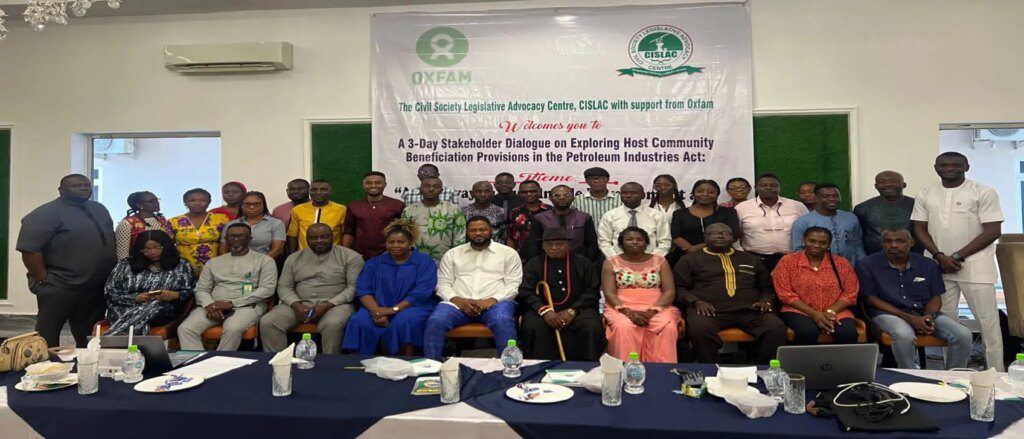Communities and Civil Society Organisations Demand Transparency from Nigerian Upstream Petroleum Regulatory Commission
A recent stakeholders’ dialogue in Uyo, Akwa Ibom State, has brought to the fore the need for transparency in the oil and gas industry. The event, organized by CISLAC and OXFAM, was attended by oil producing communities, civil society organizations, and the media, who all called on the Nigerian Upstream Petroleum Regulatory Commission (NUPRC) to make public the available data on the 3% Operating Expenditure (OPEX) revenue paid by oil firms in the state.
The communique from the stakeholders’ dialogue urges the NUPRC to explain how the revenue is being calculated and to make public the Gas Flare Penalty of all oil firms, citing the example of the $21 million paid by Mobil for Akwa Ibom State to address ecological issues. The communique also called for the state government to engage the Federal government on the utilization of the gas flare penalty for the relief and remediation of host communities.
Moreover, the communique urges the NUPRC to respond to the requests and furnish the Host Community Development Trusts (HCDTs) and the public with data on the 3% OPEX revenue paid by settlers and how it is calculated transparently. It also emphasized the need for NUPRC to increase media sensitization on the HCDTs and their operations, as well as to recruit more personnel and train existing staff in the HCDT unit to increase efficiency.
The meeting also addressed the issue of Gas Flare Penalty, with the communique urging the NUPRC to demand a Gas Flare Elimination Plan from oil companies and the redesign of their systems to eliminate gas flaring. It also encouraged the CEO of TotalEnergies to set up an HCDT in Akwa Ibom State and not "cherry-pick" which trust to set up or not.
The stakeholders’ dialogue, therefore, serves as a reminder to community stakeholders of their right to petition the EFCC and ICPC when the need arises or seek redress in court when they feel shortchanged by their HCDTs. The meeting concluded that HCDTs should make public the tender and bid in the procurement process of their projects and programs, as opacity and corruption in the committee deny communities of the needed critical social goods and services.
